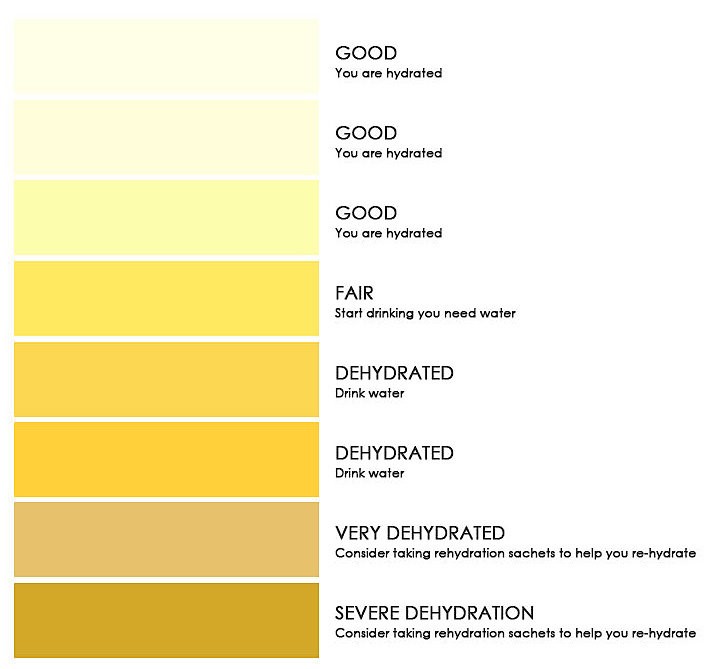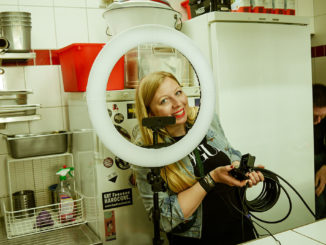
Our brain needs a constant supply of energy – but especially in times of intense studying and exam taking. So what should we eat to help maximize our brain power? Which foods are the right food for the brain and does the so-called “super food” really exist? This blog article gives you the answers you need to get through the exam phase well and full of energy!
Let me answer your most pressing question before we talk about anything else – there is no secret food for the brain, no “super food”, which will magically make your grades better. Sorry! It is still all about studying and preparing in a way that fits the topic, the course and the type of exam.
Now that this is out of the way, there are a few things that we do know from science about good food for the brain. Food that can help our mental performance, by delivering the right kind of energy. Energy that we need when studying or performing during exams. Our brain is a complex network of neurons (nerve cells) that is always active, even when we sleep, and it needs a lot of energy. Energy that comes from glucose. Simply put, when we eat (among other things) starchy foods, our body breaks down the digestible carbohydrates into glucose and then transports it via the bloodstream to our brain and other organs for energy. And so it is no surprise that science has been trying to figure out the role of food in cognitive performance, including attention, memory and learning. Quite literally and figuratively (thank you, Ted! IYKYK), science is looking for food for the brain!
What to eat while studying: good food for the brain
Fueled by research (no pun intended), there has been a strong conviction that performance can be elevated through the so called “sugar rush”, arguing that glucose can improve cognitive functioning. Studies have shown that our brain is sensitive to short-term drops in blood glucose levels and that it appears to respond positively when these levels rise. Basically, we grab that chocolate bar when we feel low on concentration and seek a quick high. More recent research, however, has disproven this all too simplistic take on performance activation. Using the gold standard in science, a meta analysis of existing empirical evidence, scientists in Germany and the UK were able to show that consuming sugar doesn’t actually elevate concentration levels. In fact, it rather makes us tired and inattentive – about 30 to 60 minutes after we have consumed it.1 And that doesn’t exactly help with concentration nor performance. A way out had been presented earlier by a team of psychologists who made their study participants merely rinse their mouths with lemonade, instead of drinking it, so that the sugar wouldn’t enter the bloodstream. Results showed that this increased self-control, our effortful regulation of thoughts and actions, which are beneficial in achievement and success.2 The researchers argued that the taste of sugar alone was able to activate the reward system in our brain – but without the negative consequences of ingesting sugar afterwards.
It’s clear that we need to provide our brain with energy, especially when we need to perform. What is less clear is how we should best do it. So what is good food for the brain then? Eating that chocolate bar? Gargling with sugary drinks? Well, glucose is definitely needed but those “simple sugars”, monosaccharides (one-unit-only sugars) that can be found in honey, industrially produced sweets and sugary drinks, may not do the trick. Instead, polysaccharides (long single-unit sugar chains) are a far better alternative because they last longer. So go eat those whole grain foods, potatoes and vegetables! Additionally, science is pretty strong on the beneficial effects of omega-3 fatty acids which you can find, for example, in tuna, salmon, mackerel, almonds, walnuts, olive oil, spinach, broccoli, soy beans and tofu. And if you want to spice things up, Curcuma has been found to positively affect cognitive performance, similar to the flavonoids from green tea and blueberries. Here you have your food for the brain, with many added health benefits.
Hydration as another important component of brain nutrition
Last but not least: always make sure to stay hydrated. Even mild dehydration dampens our concentration. While there may be no one single rule on just how much you should drink every day (hint: it depends on the individual, their body composition, their lifestyle, situational factors and many more), there is an easy way to measure scientifically how well you’re doing with that hydration. Check your urine. No, seriously! It is called the UCol (urine color) measure and there is a validated color chart available (Figure 1). It was developed in 1994 by Lawrence E. Armstrong, a professor in physiology and human (sports) performance at the University of Connecticut, to measure the hydration status in his study participants, via their urine samples. And it is still used today! So drink up. Just don’t forget about our rules on bathroom breaks during exams 😉 .
Now that we know what food for the brain (and water) we need, I wish you the very best of success during exam time! And if you ever crave more easily digestible (again, no pun intended – sorry!) information on food, check out the website my colleagues at the European Food Information Council have put together: www.eufic.org
References:
1 Mantantzis K, Schlaghecken F, Sünram-Lea SI, Maylor EA. (2019) Sugar rush or sugar crash? A meta-analysis of carbohydrate effects on mood. Neuroscience and Biobehavioural Reviews. 101:45-67.
2 Molden DC, Hui CM, Scholer AA, Meier BP, Noreen EE, D’Agostino PR, Martin V. (2012) Motivational versus metabolic effects of carbohydrates on self-control. Psychological Science. 23:1137-44.
3 Gunawan AS, Brandon D, Dwi Puspa V, Wiweko B. (2018) Development of Urine Hydration System Based on Urine Color and Support Vector Machine. Procedia Computer Science. 135:481-489.
4 Armstrong LE, Maresh CM, Castellani J, Bergeron M, Kenefick RW, LaGasse KE, Riebe D. (1994). Urinary indices of hydration status. International Journal of Sport Nutrition. 4:265–279.
The author is responsible for the content and form of the article.

You are interested in economics and want to acquire in-depth business know-how?
Then the international business degrees at Munich Business School (MBS) are just right for you! At MBS you won’t cram dry theory from old textbooks, but learn in a outcome-oriented way and gain valuable practical experience. Convince yourself:
Bachelor’s in International Business
Master’s in International Business
Master’s in International Business I Finance
Master’s in Innovation and Entrepreneurship
Master’s in International Marketing and Brand Management
Master’s in Sports Business and Communication
MBA General Management
Doctor of Business Administration





